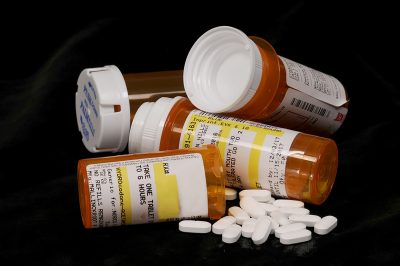
Massachusetts Gov. Charlie Baker introduced a bill to tax manufacturers of opioid medications. If passed, the state would levy a 15 percent excise tax on the sales of prescription opioids in the state, which would generate an estimated $14 million to address opioid misuse, according to WBUR.
This bill follows other recent efforts by the state to combat the growing opioid crisis, including Massachusetts Attorney General Maura Healey’s lawsuit against Purdue Pharma, the maker of opioid painkiller OxyContin, for deceptively selling its highly addictive painkiller to thousands of patients, according to NPR.
Healey launched an investigation against Purdue in June 2017, according to a press release from the attorney general’s office. The investigation later expanded to other opioid manufacturers and distributors including Endo, Janssen, Teva, Allergan and many other companies.
“The opioid epidemic is killing five people every day in Massachusetts,” Healey said in the release. “Purdue Pharma and its executives built a multi-billion-dollar business based on deception and addiction.”
Since 2008, Purdue has allegedly had sales representatives push the use of opioids in Massachusetts doctors’ offices, clinics and hospitals more than 150,000 times, according to the release. The release also states Purdue has given money, meals or gifts to more than 2,000 Massachusetts prescribers.
Baker said in the release that holding Purdue Pharma accountable for these allegations is a critical step in reducing the number of highly-addictive pills in Massachusetts. In the future, Baker said he looks forward to working with the AG for reforms to reduce the use and distribution of opioids.
“Our administration will continue to implement reforms, including critical data collection on overdoses and prescriptions distributed through the updated Prescription Monitoring Program,” Baker said in the release, “and work with the legislature on our latest bill to stem the tide of this public health epidemic.”
Rachel Schwartz, director of communications of the Association for Accessible Medicines, said she thinks the 15 percent tax might burden poorer patients, as it fails to distinguish between the drugmakers that sell overly expensive brand name drugs and those who sell affordable generic versions of those drugs to patients in need.
“A tax like this on generic manufacturers is a misguided public policy for two reasons,” Schwartz said. “It does not solve a problem, and it puts an extremely high financial burden on the backs of the manufacturers who bring affordable prescription medicines to patients in Massachusetts.”
When this extra financial burden is placed on companies that make less profit on their drugs, Schwartz said these generic drugmakers may be forced out of Massachusetts. She said this would deprive lower-income patients of their much-needed drugs and will repeat the same problem faced in New York.
“New York passed a law in 2018 that placed a tax on manufacturers and wholesalers,” Schwartz said. “The law was found unconstitutional. Tellingly, the tax there would have outstripped the revenues that many generic drug makers have from operating in that state.”
Schwartz said the U.S. government is already doing a lot to combat the opioid epidemic nationally, including intervention by the U.S. Drug Enforcement Administration and efforts by legislators to pass laws improving doctor education, prescription limits, increased insurance, state prescription drug monitoring programs and a reduction in “pill mills.”
“On the federal side, the Drug Enforcement Agency controls the number [of] opioids allowed to be manufactured and over the past few years have reduced that number considerably,” Schwartz said. “All of these initiatives are already resulting in a decrease in deaths related to opioid use.”
Joseph Smith, 22, of Roxbury, said he hopes the new bill aids in the fight against the country’s opioid epidemic but thought the heavy tax could cause additional issues for drug making companies, and subsequently, patients in need of the medications.
“I know this tax is something many other states have tried over the past year and have not succeeded,” Smith said. “This is why I am very concerned towards what this could mean for companies and people in Massachusetts.”
South End resident Steve Williams, 42, said he thought the opioid epidemic has been a major recurring problem in the United States for the last few years and does not believe the tax will be enough to stop the epidemic.
“In order for change to happen,” Williams said, “I think we have to find other solutions to the opioid problem like informing young people about the long-term consequences of the epidemic.”
Ana Fernandez, 35, of Back Bay, said she supported Baker’s efforts to address the opioid epidemic, as she personally knows many people who have suffered from opioid abuse and addiction.
“I see the effects it has on people’s life,” Fernandez said. “I am glad Governor Charlie Baker is trying to take a different approach on the opioid crisis because it continues to be a problem for people.”























































































































Romel Beiner • Jan 31, 2019 at 8:04 am
Well done! . I Hope all these measures yield the expected results.